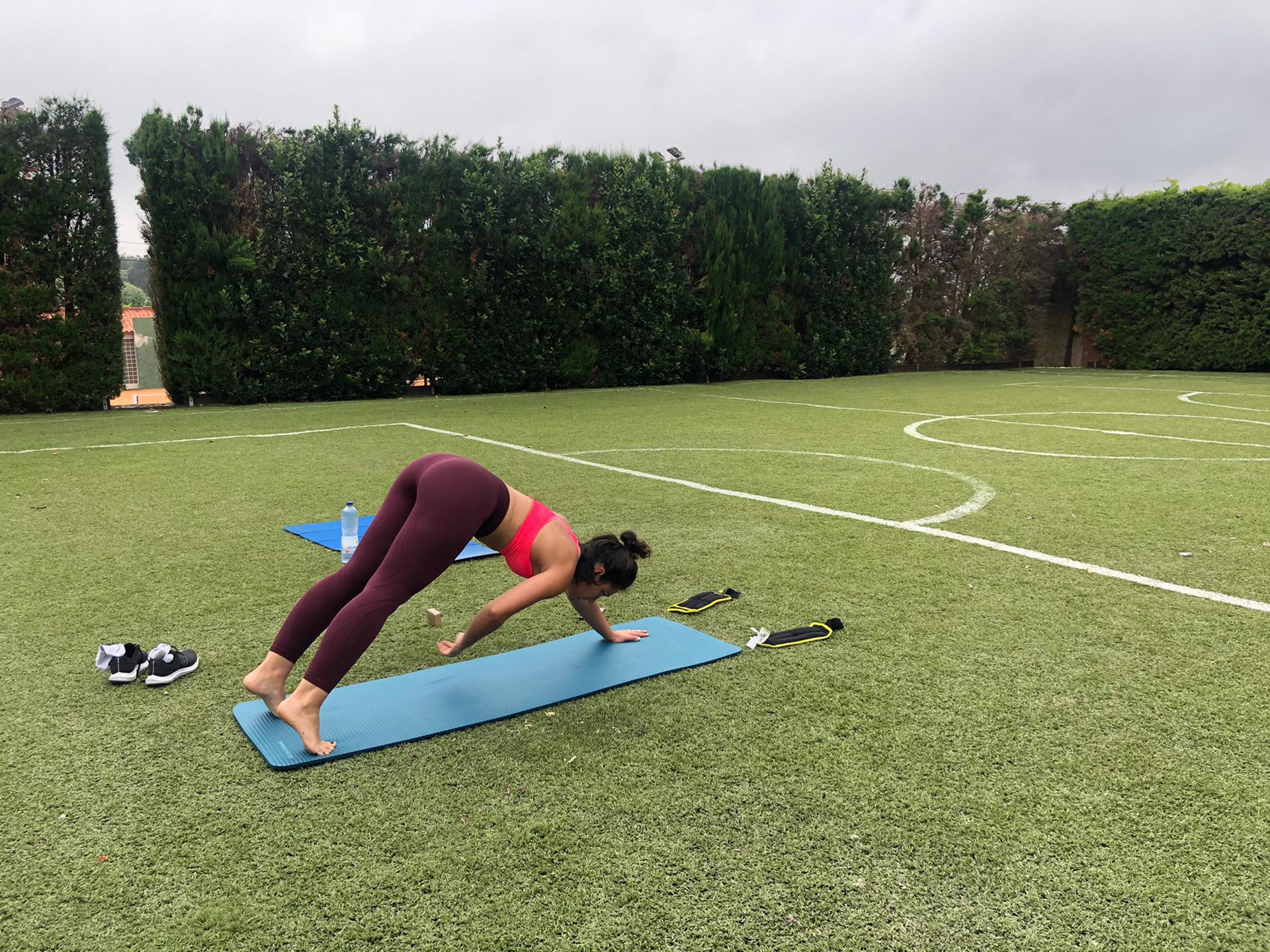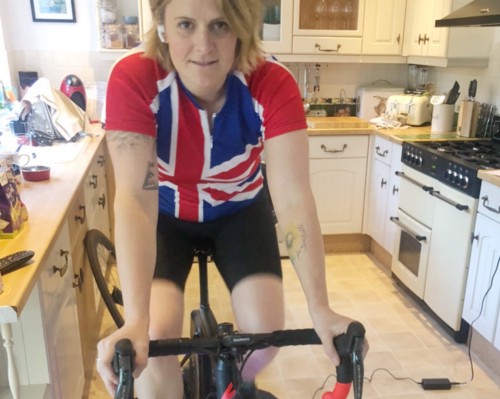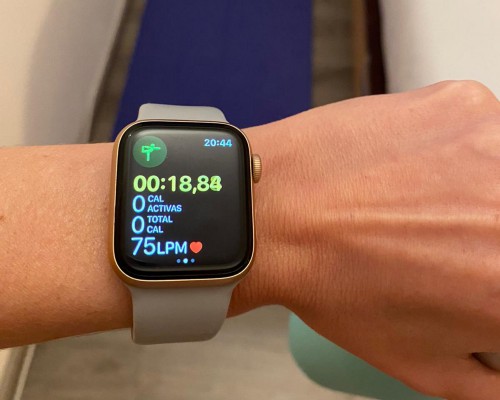
Health Habits during the Lockdown
July 22, 2020
Last May, Xperienz along with 15 other agencies from the global network of user research companies UX Fellows conducted an intercultural study in 15 different countries about health and wellbeing during the lockdown caused by the current pandemic situation.
In Portugal, Xperienz conducted 8 interviews through Zoom, having been conducted a total of 128 remote interviews with participants from 15 different countries, including Germany, Italy, Portugal, Russia, Finland, Mexico, USA, Singapore, France, Spain, UK, Poland, Turkey, Colombia and Australia.
The goal
The purpose of this investigation was to explore if the motivations for maintaining and optimising physical and mental health and personal wellbeing differ between countries and cultures, as well as which impact the Coronavirus pandemic and the associated restrictions had on people’s health behaviour.
The results
Participants identified a similar holistic definition of health, regardless of which country they live in, which comprises both mental and physical health.
"Health is a mix of everything. It's not just a checkup, it deals with your way of life, the balance you find between professional and private life, your physical and your mental health" Bianca (36), IT
The pandemic related restrictions had both positive and negative effects on health and wellbeing. While in countries like France, Italy, Spain and UK, social distancing and remote work made people gain more free time and have less stress than usual, having also more time to cook, workout and find new hobbies, for other participants, specially in the USA and Russia, the lockdown caused more stress and uncertainty. These say they had more difficulty disconnecting from work and felt overwhelmed by the double burden of managing domestic and professional responsibilities.

As a result of gyms being closed, restrictions in the use of workout equipments in public parks, the prohibition of organised sports and physical activities in groups, people were forced to find new ways and places to stay active. Starting to practice physical exercise at home was a new experience for many people. What caused more frustration was the limitation of the kind of sport they could practice, having to train alone and the lack of equipment and space to practice sports at home.
The quality of sleep was also affected by pandemic related restrictions. While some participants reported they started sleeping more because they didn’t have to waste time commuting to work, others mentioned sleeping was more problematic due to the disruption in their normal patterns and routines. That sleeping disruption was worst due to the feeling of anxiety induced by pandemic related news, particularly in countries like Spain, Mexico and Colombia.
For most people, nutrition improved during the lockdown. Having more time to plan and prepare meals at home, being more conscious of the food they bought in more limited grocery store trips and eating out less made them have more control over what they ate, typically leading to better food related choices.

Technology can play a significant role in optimising health. Participants from all countries use smartwatches or fitness trackers to collect data while they are practicing sports like running, cycling and swimming, or for more passive activities like step counting. In every country people also use apps specifically designed for activities like running, cycling, yoga or fitness workouts.
The interview also explored the role of digital assistants in achieving and maintaining health goals. Participants expressed a preference for a technology that was able to view health holistically, rather than focus on a single aspect such as physical activity.
Participants were also questioned about their opinion regarding Covid-19 contact tracing apps. Willingness to use a COVID-19 contact tracing app differed between countries. Although the majority is in favor, its usage would depend on the trust in authorities and clear comprehension of which personal data would be collected, how and who would have access to it. Participants in Finland, Italy, USA and Colombia showed a strong support for such an app.
The conclusions
The study demonstrated that whilst technological health support, like for example fitness trackers and smartwatches, is already adopted around the world, the pandemic situation seems to have made this ground even more fertile. Technology plays an important role in health optimisation and was fundamental for most participants to keep active during the lockdown.
The full study is available for download on the UX Fellows website at https://www.uxfellows.com/studies/study_health.html
Related Articles
-
Design for a better world - How working together and applying design approaches is improving people's lives
9 November is World Usability Day 2023. This year's theme is Collaboration and Cooperation, which intents to focus on how we can work together to create solutions, both globally and locally, to solve the world's biggest problems.
-
Be an Agent of Change - Check these resources to help you build more ethical designs
The role of today's designer goes far beyond simply creating beautiful interfaces and experiences. You can no longer design without considering the consequences of how what you're creating impacts individuals, society and the world.
-
The future is today — How can we leverage AI to improve our UX Design work
AI has now become a big part of several areas of our lives, and UX Design is no exception. It’s actually becoming more and more applicable to the UX design process.
-
Conducting usability testing with people with disabilities
Drawing on our experience conducting usability tests with users with disabilities, we’re sharing a few things to take into account when planning and conducting research with people with disabilities and make sure everything goes smoothly and you can collect valuable insights.
-
Raising Awareness for Web Accessibility [Infographic] — International Day of Persons with Disabilities
Last December 3 we celebrated the International Day of Persons with Disabilities. To help promote a more accessible Web we’ve put together an easy-to-digest infographic about Web Accessibility.
-
Why hiring external UX services even when you have an in-house UX team?
Even if you have an in-house UX design team, there might be times when additional resources and professional know-how can be useful. Bringing in an external UX team might be exactly what you need for your company to excel in all projects.
-
Health and UX: when design has a life-saving potential
A good experience with healthcare technology and services, that is both useful, accessible and reliable, can make a huge different in improving peoples’ well-being, as well as the work of healthcare professionals.
-
"You're on Mute" - Lessons Learned After a Year of Conducting Remote User Research
After more than one year of engaging with users remotely, we want to reflect on the pitfalls of remote user research, share some of the lessons we learned and reflect on what’s going to be “the next normal” after Covid’s impact.
-
Quick & Dirty User Research
Tight timescales and budgets are no excuses to ditch user research altogether, specially when we all know it’s essential to make sure you deliver easy-to-use products. Quick and dirty research is a great way to get user insights fast and on a budget.
-
How bad metrics are hurting your business and your users’ experience
Businesses are deceiving themselves and annoying their customers as a consequence. They do so when they apply biased surveys only expecting to confirm what they want to hear.
-
UX Writing — Create better experiences with better content
Imagine a website or an app with no words. If it wasn’t for the logo, would you be able tell what this page is about? Would you know which button to click? Where navigation would take you? What you’re supposed to write in the search bar? No matter how good-looking an interface is, without words users will simply not be able to accomplish any tasks in it.
-
10 Bad User Research Practices You Will Want to Avoid
Some might think user research is as simple as watching people perform a few tasks on a website or asking them a few questions, but user research is definitely not walk in the park. Let’s go through some of the mistakes that can arise when planning and conducting research.
-
The Design Role in Digital Transformation
As the world keeps evolving and digital becomes more crucial to our everyday life, companies are feeling pressured to keep up and level up their game.
-
Remote UX Research — our selection of the best online tools to conduct it
As a company that focus on UX research and design, we gathered some of the best tools to conduct remote research and combined them, with our personal knowledge, in this article.
-
Why We Need Parametric UI Design Tools
In Design, parametric refers to a process based on algorithmic thinking that uses parameters and their interrelations to define a geometric form (which can be buttons, containers, panels, etc.).
-
Health Habits during the Lockdown
Xperienz, along with 15 other agencies from the global network of user research companies UX Fellows, conducted an intercultural study in 15 different countries about health and wellbeing during the lockdown caused by the current pandemic situation.

